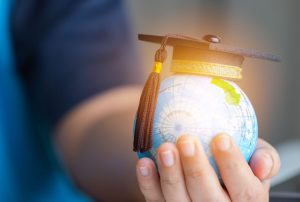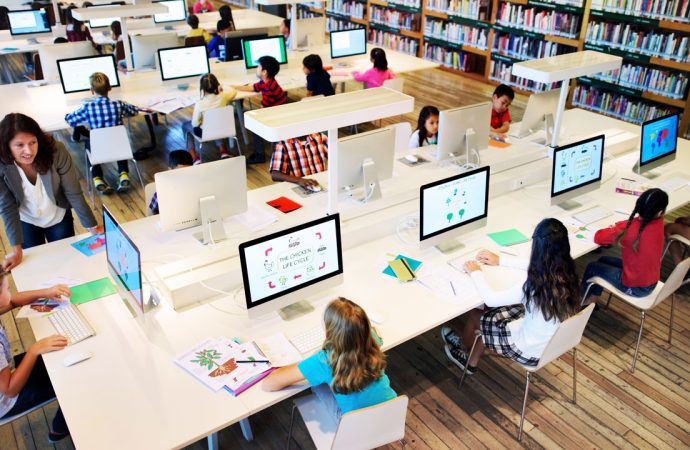Tracing the early roots of global education systems worldwide reveals a fascinating tapestry of pedagogical practices and educational philosophies that have evolved over centuries. Historically, education systems were localized, tailored to the needs and resources of the community they served. However, the advent of more centralized education forms in places like ancient India, medieval Islamic
Tracing the early roots of global education systems worldwide reveals a fascinating tapestry of pedagogical practices and educational philosophies that have evolved over centuries. Historically, education systems were localized, tailored to the needs and resources of the community they served. However, the advent of more centralized education forms in places like ancient India, medieval Islamic caliphates, and Renaissance Europe marked significant milestones in the development of global education. These systems began to influence one another increasingly through trade, conquest, and intellectual exchange.
Examining key milestones in the evolution of global education, one can observe significant events such as the establishment of the University of Al Quaraouiyine in Morocco in 859 AD, considered by many as the oldest existing, continually operating educational institution in the world. This was followed by the emergence of universities in Bologna and Paris, which further catalyzed the standardization of educational curricula across Europe. The Industrial Revolution was another turning point, leading to the development of mass education systems in the 19th century, aimed at meeting the demands of industrialized economies.
Key Philosophies Driving Global Education

Image by : Yandex
Incorporating technology advances into global education curriculums has become a cornerstone of contemporary educational philosophy. The integration of digital tools and resources has transformed traditional educational methodologies, enabling more interactive and engaging learning experiences. This shift not only supports the acquisition of traditional academic skills but also equips students with the digital literacy necessary for success in the modern world.
Promoting inclusivity and diversity within global education systems is another fundamental philosophy that has shaped modern education. This approach recognizes the value of bringing diverse perspectives into the classroom, thereby enriching the learning experience and preparing students to operate in a globalized society. It involves adapting teaching methods, curricula, and policies to ensure that all students, regardless of their background, have equitable access to quality education.
Technological Advancements Impacting Global Learning
The integration of AI in global education enhances personalized learning by allowing educational content and pacing to be tailored to individual student needs. AI-driven platforms can assess a student’s current understanding and learning style, adapting in real-time to provide support or challenge as needed. This technology promises to revolutionize the way educators approach differentiation in the classroom.
Virtual reality creates immersive experiences in global education systems, offering students the opportunity to explore worlds or scenarios that would be impossible in a traditional classroom setting. Whether it’s walking through historical sites, dissecting complex machinery, or exploring human anatomy, VR enables an experiential form of learning that enhances comprehension and retention of knowledge.
Global Education Policies and Frameworks
Exploring the impact of technology on global education policies reveals a dynamic landscape where educational leaders must continually adapt to the rapid pace of technological change. Policies are increasingly focusing on issues such as data privacy, cyberbullying, and the digital divide, ensuring that technology serves as a tool for empowerment rather than a barrier to access.
Assessing global education frameworks’ adaptability to evolving societal needs is crucial in maintaining their relevance and effectiveness. As societies evolve, so too must the frameworks that govern education, ensuring they remain aligned with the values and skills that will be most beneficial for future generations. This ongoing process requires a commitment to innovation, collaboration, and foresight from policymakers and educators alike.
Role of Multiculturalism in Education
Global education fosters multicultural competence in evolving educational landscapes by preparing students to interact and collaborate with individuals from a variety of cultural backgrounds. This competence is increasingly important in a globalized world where cross-cultural interactions are common. It not only enhances personal development and mutual understanding but also supports professional success in diverse environments.
Multiculturalism enriches global education through diverse perspectives and inclusivity, offering students a broader, more comprehensive view of the world. Educators who embrace multicultural education help students recognize and appreciate the value of diversity while challenging the prejudices and stereotypes that can hinder social cohesion.
Challenges and Barriers in Global Education
Inequitable access to technology hinders global education inclusivity, as not all students have the same level of access to digital tools and the internet. This digital divide can exacerbate existing educational inequalities, particularly in less developed regions. Addressing this challenge requires concerted efforts to provide universal access to technology and to ensure that all students benefit from its potential.
Cultural barriers impede the uniform evolution of global education by creating disparities in how education systems value and integrate different cultural norms and practices. Overcoming these barriers involves promoting cultural sensitivity and inclusion within educational policies and practices, ensuring that all students feel valued and supported in their learning environments.
Future Trends and Predictions in Global Education

Image by : Yandex
The integration of AI in global education curriculum development and delivery is expected to continue, with AI tools becoming more sophisticated and widespread. This trend will likely lead to more personalized and adaptive learning experiences, potentially transforming the role of educators into facilitators of learning rather than providers of knowledge.
A shift towards personalized learning in global education systems worldwide is anticipated as educators seek to meet the diverse needs and potentials of individual students. This approach will require flexible curricula, innovative teaching methods, and ongoing professional development for teachers to effectively implement personalized learning strategies.
Case Studies of Successful Global Education Models
Exploring Finland’s approach to student-centered global education methodologies reveals a system that emphasizes creativity, critical thinking, and student well-being. Finnish educational success is supported by policies that ensure high-quality teacher education, decentralized administration, and trust-based responsibility rather than strict accountability measures.
Singapore’s integration of technology in its global education system evolution demonstrates a commitment to preparing students for a digital future. The government’s substantial investment in technology infrastructure and professional development for teachers has established Singapore as a leader in educational innovation and effectiveness, reflected in its students’ outstanding performance in international assessments.
















